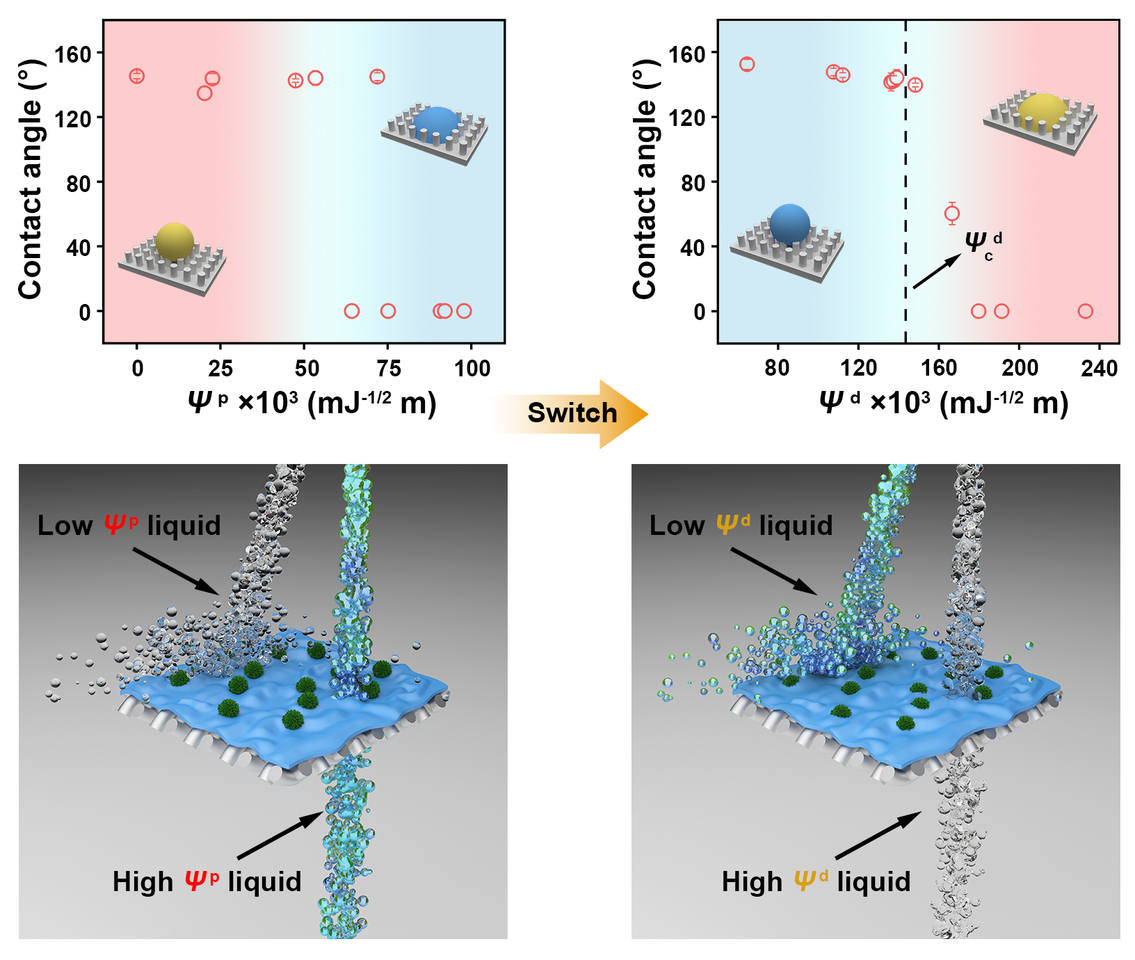After billions of years of evolution, nature creates countless mysterious phenomena with charming special wettability, such as the self-cleaning effects of lotus leaves, the anisotropic surfaces of the rice leaf, the water-resistance properties of duck feathers, and so on. These phenomena inspired research efforts to develop superwetting artificial surfaces for investigating fundamental interfacial phenomena, as well as for addressing practical issues in the areas including self-cleaning, fluid manipulation, icing reduction, drag reduction, and so forth.
In recent years, artificial surfaces with tunable wettability have aroused great interest, and made the study of separation membranes enter the “intelligent age”. However, most reported studies focused on the water/oil wettability that the surface energy difference is as large as 60 mJ m-2. Developing superwetting membranes with powerful wettability switch capabilities for extensive organic liquids (low surface energy with 25 mJ m-2 ~ 40 mJ m-2) is hitherto unreported, which is one of the challenging topics in fluid-related fields.
Herein, we have made good progress in designing any surface with target wettability for extensive organic liquids including polar protic liquids, polar aprotic liquids, and nonpolar liquids. We develop a previously unknown polarity/dispersion-interaction-regulated strategy supported by DFT theoretical calculation. A new-defined physical parameter intituled as surface energy component index (Ψ) is proposed to evaluate and predict arbitrary liquid wettability on the solid surface. Liquid wetting or anti-wetting on the resulting surfaces exhibits a surprisingly straightforward connection with this physical parameter, rationally and precisely replacing the generally recognized surface energy in the classical interfacial theory.
Based on the proposed principle, smart superwetting membranes with positive/negative organic liquid wetting regularity are prepared through the hierarchical orientation change of the two synergetic aggregation-induced layers with different surface energy components, even afford the opposite separation modes for organic liquids mixtures with a record-breaking surface energy difference as small as 0.3 mJ m-2 (to the best of our knowledge, the lowest value in the reported studies was 2 mJ m-2 and was limited by additional organic media pre-wetting). The tunable wetting and liquid-repellent properties of the membrane system perform the intelligent achievement of self-adaptive organic liquid gating (>98% separation efficiency for at least 22 types of oily liquids system), in situ extraction-back extraction coupling (improve ~7% extraction efficiency and reduce ~80% heterogeneous residue compared with conventional methods), wettability patterning, organic reagent purifying, and the composition determination.
In conclusion, this work not only provides a substantial and definitive complementarity to the understanding of organic liquid wetting behaviors but also promotes this facile and low-cost nanotechnology toward other wettability-oriented fields.
To read more about our work at Nature Communications: https://doi.org/10.1038/s41467-020-20369-9





Please sign in or register for FREE
If you are a registered user on Research Communities by Springer Nature, please sign in